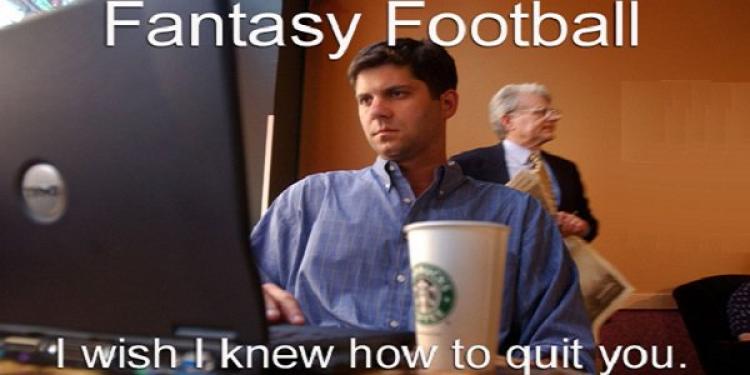Daily Fantasy Sports and the Gambling Industry May Butt Heads
Posted: August 6, 2015
Updated: October 6, 2017

Daily fantasy sports are doing so well that the gambling industry wants in.
Daily fantasy sports are beautiful hybrid of fact and fiction. Some sports fans may recall when they were kids, looking at baseball cards, and simply comparing players. Questions come up such as “who is better?” Then would come the traditional matching up of players they would want on a fantasy team. The timeless practice can be made into a reality thanks to fantasy sports.
• Daily fantasy sports is a multi-billion dollar business in the United States
• The Nevada Game Control Board is questioning fantasy sport’s legality
• Gambling by lawmakers may be determined by the ratio of skill to chance
In fantasy sports, people build a team as an owner and their players compete with other teams. The ingenious part is that the performance of actual players in real life affects their performance in the fantasy league. This has created mounds of money and controversy among those critics who cannot decide if fantasy sports falls into the parameters of US gambling laws. Nevertheless with so much being spent legally to Americans with full access everywhere, the gambling industry is starting to get “itchy to have their share.”
The threat posed by daily fantasy sports
Millions of Americans draft fantasy sports teams online and compete with one another for very real money. Currently, daily fantasy sports is a multi-billion dollar business. FanDuel and DraftKings lead the industry and have attained hundreds of millions of dollars in past few weeks. As the two USD 1 billion monoliths dominate, not too far from the shadows is the “salivating” gaming industry.

Corporations such as MGM Resorts International and Boyd Gaming Corp are starting to make their intentions known by pushing for regulation in daily fantasy sports. Also joining this battle sportsbook companies like William Hill Plc. From the legalized confines of Las Vegas, these companies told Reuters that daily fantasy sports should get the same treatment as any other gambling entity.
Joe Asher, CEO of William Hill US, spoke about the regulation. “I make my living in the gambling industry, so I’m hardly opposed to gambling. I think fantasy sports betting should be legal, just like I think traditional sports betting should be legal. But let’s not pretend one is Ok and the other is not. Drawing some artificial line between the two makes no sense as a matter of law or policy.”
Nevada can definitely see the potential threat held by daily fantasy sports. Known in gambling news, these companies are active in 45 states. Due to their “confusing nature”, some state legislators are still trying to decide whether or not fantasy athleticism should be considered gambling. The Nevada Gaming Control Board that controls gambling activities within Nevada is starting to question daily fantasy sport’s legality.
The effort to officially define daily fantasy sports as gambling

Daily fantasy sports were dealt an incredible “pass” as the Federal Unlawful Internet Gambling Enforcement Act of 2006 brought regulation to online poker, but left its fantasy cousins unscathed. As a result daily fantasy sports sites do more than enough to highlight these legal oversights. DraftKings displays on their website they are “100 percent legal” while FanDuel claims its “legal status of the games” are taken “very seriously” as they do their “utmost to ensure compliance with” existing laws.
Some pro-fantasy lobbyist claim that the industry differs from gambling in a way because more knowledge and efforts goes into the outcome of players’ games. Making the claim of daily fantasy sports validity by “ruling out chance” may cause some consternation amongst sportsbooks who can support that their handicapping abilities requires as much mental skill and knowledge of the sport as needed by fantasy sports owners.
Although fantasy sports started in the 1980, daily fantasy sports entered the spotlight a few years ago. Critics have argued that the sheer amount of betting done by players makes it similar to gambling. AG Burnett, chairman of the Nevada Gaming Control Board, said “when chance begins to govern the outcome more than skill, you have a form of gambling, and that’s when the need for regulation kicks in.”
Burnett also mentioned how the nature of skill and chance can coincide, online casinos report. “When you start offering daily fantasy contests, then you start to blur the line between skill and chance.” In US gambling news, FanDuel and DraftKings made a joint statement that they are together “speaking with gaming industry representatives to educate them on the fantasy sports industry as our products are fundamentally separate from, and not competitive with casinos and gaming businesses.”












